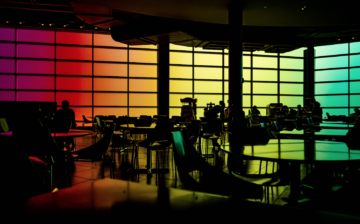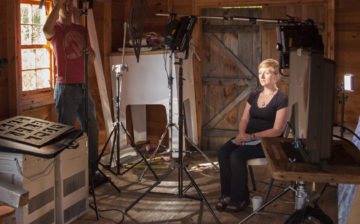Workshops
Analyze the sound, structure, imagery, tone, and voice of poetry, exploring how to make your prose more memorable and effective.
Dates:
Sep 10, 2024 - Sep 26, 2024
Levels:
Beginner,
Intermediate,
Workshop Fee: $495
Workshop Duration: 12 hours over 6 sessions of class time with 1:1 sessions (Tuesdays & Thursdays, 1-3pm ET)
Workshop Location: Online
Class Size: 8
Note: This workshop will be held in a live, online format utilizing the Zoom platform.
Class meets Tuesdays & Thursdays, Sep 10, 12, 17, 19, 24 & 26 from 1-3pm ET. 1:1 sessions will be held on Oct 1 & 3 and run for 20 minutes per student.
In an address to Parliament on June 4, 1940, with a Nazi invasion of Great Britain thought to be imminent, Prime Minister Winston Churchill vowed: “We shall fight on the beaches, we shall fight on the landing grounds, we shall fight in the fields and in the streets, we shall fight in the hills; we shall never surrender.” Why is this speech—and this particular passage—still remembered today, and why was it powerful enough to inspire the British people to withstand years of bombardment, deprivation, and loss?
In this workshop, we’ll analyze the devices of poetry—sound, structure, imagery, tone, and voice—and explore how you can use them to make your prose—whether fiction or non-fiction—more memorable and effective.
Students will come to the first class with an ongoing writing project they’re working on or at minimum a thoughtful plan for a project they wish to begin. Prose writing projects might vary in purpose and scope from a marketing pitch to the first draft of a novel. Poets working on a chapbook or longer collection who wish to learn more about poetic devices are also encouraged to enroll, as exposure to work in different genres can broaden all students’ perspectives.
Each session will begin with an examination of a poetic device: what it is, what it can do, and how to apply it. We’ll look at a poem that successfully employs the device, and then turn to brief excerpts from speeches, essays, memoirs, short stories, or novels that apply the device to memorable and powerful effect. We’ll then do in-class writing to playfully try using the device ourselves. Students will be invited to share their work if they wish.
Outside of class, students will apply each device to their ongoing writing project. In the subsequent class, students will share a brief excerpt from their work, demonstrating “before and after” their application of the device, followed by supportive critique and discussion. Students will leave the course with a more polished draft of at least a portion of their project demonstrating the application of the devices.
Following the final class session, students will schedule 20-minute one-on-one consultations with the instructor to talk about their work and writing goals.
Share This

Instructor: Laura Bonazzoli
Laura Bonazzoli’s short stories have appeared in Exposition Review, Evening Street Review, The Sandy River Review, and other literary magazines. Her novel in stories, Consecration Pond, was described by Publisher’s Weekly as “poetic and introspective . . . a solid, meditative collection of interconnected short stories that weave together seemingly disparate narratives into a satisfying and cohesive whole.” It was published by indie press Toad Hall Editions in August, 2022. Laura’s poetry has appeared in dozens of literary magazines and several anthologies and has been selected for Maine Public Radio’s Poems from Here. A freelance editor and writer, Laura has also published personal essays and content on science, health, and medicine. She lives in a renovated schoolhouse in Midcoast Maine.




